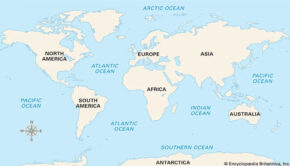Medical issues for Vendée Globe sailors
Published on December 13th, 2024
While racing in what is almost certainly the most extreme sailing event in the world, Vendée Globe skippers are subjected to particularly testing conditions for the human body. Between the permanent damp and wetness, sudden movements of the boats, and the often uncomfortable postures, these ocean racers face many, many risks.
Among the most common medical issues are skin pathologies linked to humidity, salt, friction, and hygiene. Additionally, back pains due to the restriction to confined spaces that do not always allow standing, and finally, risks of falls in the boat which might result in concussions.
Doctor Kapandji, a great surgeon, was one of the first to compare the human spine to the mast of a boat and the musculature surrounding it to the shrouds (supporting cables attached on either side of the mast supporting it), the pelvis representing the hull of the ship.
This comparison is actually consistent, especially since all the pathology of the spine/back can be explained in this situation with the compression that results from it. And to accentuate this comparison, it turns out that lumbar problems are the main one in offshore racing.
It starts at a very young age with children lifting their Optimist boats to launch it. Then the sitting posture, to steer for hours in more or less stable and comfortable positions, or spent in front of the computer and weather files for long hours.
Finally, the over-use of the back muscles, with efforts in a low, enclosed space, bent over a winch pedestal with sails to hoist (knowing that the largest sail in IMOCA weighs around 80 kg/176 lb), and finally the stacking which consists of moving the “spare” equipment (tools and food) inside the boat at each maneuver to provide righting moment. That means considerable loads to carry or move around.
To prevent back pain, generally it is important to try to avoid heavy loads, adopt a good posture (bending your knees or kneeling), and favor gentle activities such as brisk walking, swimming, or cycling. Continuous physical preparation, including strength training, core strengthening, endurance and relaxation, remains essential, ideally supervised by a professional.
Finally, regular stretching, particularly through yoga, provides flexibility and prevents tension, a practice that can be maintained even at sea. These recommendations apply to Vendée Globe sailors but to everyone too.
In 2018, Loris Karius, Liverpool goalkeeper in the Champions League final against Real Madrid, after hitting his head on the ground during a dive, conceded two goals when he lost coordination and became clumsy. Doctors reported after that he had a concussion. At the time, that was a first for football. Since then, many sports have gradually wakened up and paid more attention to these traumas.
But here, alone on a boat on the other side of the world, things are much more complex. Today, five questions are written to be asked to the skipper in order to assess the seriousness of a situation following an impact to the head:
1. What race are you on?
2. On which sea, which ocean, which body of water are you?
3. At what time of day are you?
4. What is your nationality?
5. What is the port and the organization behind the current event?
If, following the answers, the slightest doubt arises, the medical team and the race management can decide to remain in permanent contact with the skipper. Today’s means of communication allow remote medical monitoring, offering skippers valuable support if necessary.
Race updates – Tracker – Ranking – Facebook
Attrition:
Nov. 15: Maxime Sorel (FRA), V and B – Monbana – Mayenne – ankle injury, mast damage
Dec. 4: Louis Burton (FRA), Bureau Vallée – rigging failure
The Vendée Globe, raced in the 60-foot IMOCA, is the elite race round the world, solo, non-stop, and without assistance. On November 10, 40 skippers started the 2024-25 edition which begins and ends in Les Sables d’Olonne, France.
Armel Le Cléac’h, winning in 2017, holds the record for the 24,300 nm course of 74 days 03 hours 35 minutes 46 seconds. Only one sailor has won it twice: Michel Desjoyeaux in 2001 and 2009. This is tenth running of the race.
Source: VG2024, SSN









 We’ll keep your information safe.
We’ll keep your information safe.